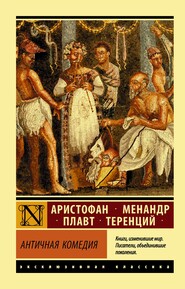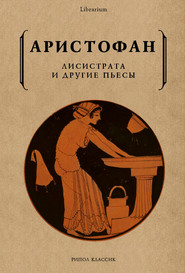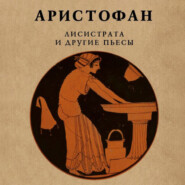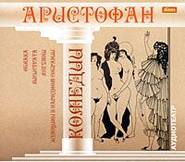По всем вопросам обращайтесь на: info@litportal.ru
(©) 2003-2024.
✖
The Eleven Comedies, Volume 1
Автор
Год написания книги
2018
Настройки чтения
Размер шрифта
Высота строк
Поля
8
Euripides' mother was said to have sold vegetables on the market.
9
The whole of this passage seems a satire on the want of courage shown by these two generals. History, however, speaks of Nicias as a brave soldier.
10
i.e. living on his salary as a judge. The Athenians used beans for recording their votes.
11
Place where the Public Assembly of Athens, the [Greek: ekkl_esia], was held.
12
This was the salary paid to the Ecclesiasts, the jury of citizens who tried cases. It was one obol at first, but Cleon had raised it to three.
13
A town in Messina, opposite the little island of Sphacteria; Demosthenes had seized it, and the Spartans had vainly tried to retake it, having even been obliged to leave four hundred soldiers shut up in Sphacteria. Cleon, sent out with additional forces, had forced the Spartans to capitulate and had thus robbed Demosthenes of the glory of the capture. (See Introduction.)
14
Literally, his rump is among the Chaonians ([Greek: chain_o], to gape open), because his anus is distended by pederastic practices; his hands with the Aetolians ([Greek: aite_o], to ask, to beg); his mind with the Clopidians ([Greek: klept_o], to steal).
15
The versions of his death vary. He is said to have taken poison in order to avoid fighting against Athens.
16
A minor god, supposed by the ancients to preside over the life of each man; each empire, each province, each town had its titular Genius. Everyone offered sacrifice to his Genius on each anniversary of his birth with wine, flowers and incense.
17
A hill in Asia Minor, near Smyrna. Homer mentions the wine of Pramnium.
18
The common people, who at Athens were as superstitious as everywhere else, took delight in oracles, especially when they were favourable, and Cleon served them up to suit their taste and to advance his own ambition.
19
Famous seer of Boeotia.
20
Eucrates, who was the leading statesman at Athens after Pericles.
21
Lysicles, who married the courtesan Aspasia.
22
Literally, like Cycloborus, a torrent in Attica.
23
He points to the spectators.
24
The public meals were given in the Prytaneum; to these were admitted those whose services merited that they should be fed at the cost of the State. This distinction depended on the popular vote, and was very often bestowed on demagogues very unworthy of the privilege.
25
Islands of the Aegaean, subject to Athens, which paid considerable tributes.
26
Caria and Chalcedon were at the two extremities of Asia Minor; the former being at the southern, the latter at the northern end of that extensive coast.
27
As though stupidity were an essential of good government.
28
The Athenian citizens were divided into four classes—the Pentacosiomedimni, who possessed five hundred minae; the Knights, who had three hundred and were obliged to maintain a charger (hence their name); the Zeugitae and the Thetes. In Athens, the Knights never had the high consideration and the share in the magistracy which they enjoyed at Rome.
29
It is said that Aristophanes played the part of Cleon himself, as no one dared to assume the role. (See Introduction.)
30
They were two leaders of the knightly order.
31
The famous whirlpool, near Sicily.
32
Eucrates, the oakum-seller, already mentioned, when the object of a riot, took refuge in a mill and there hid himself in a sack of bran.











